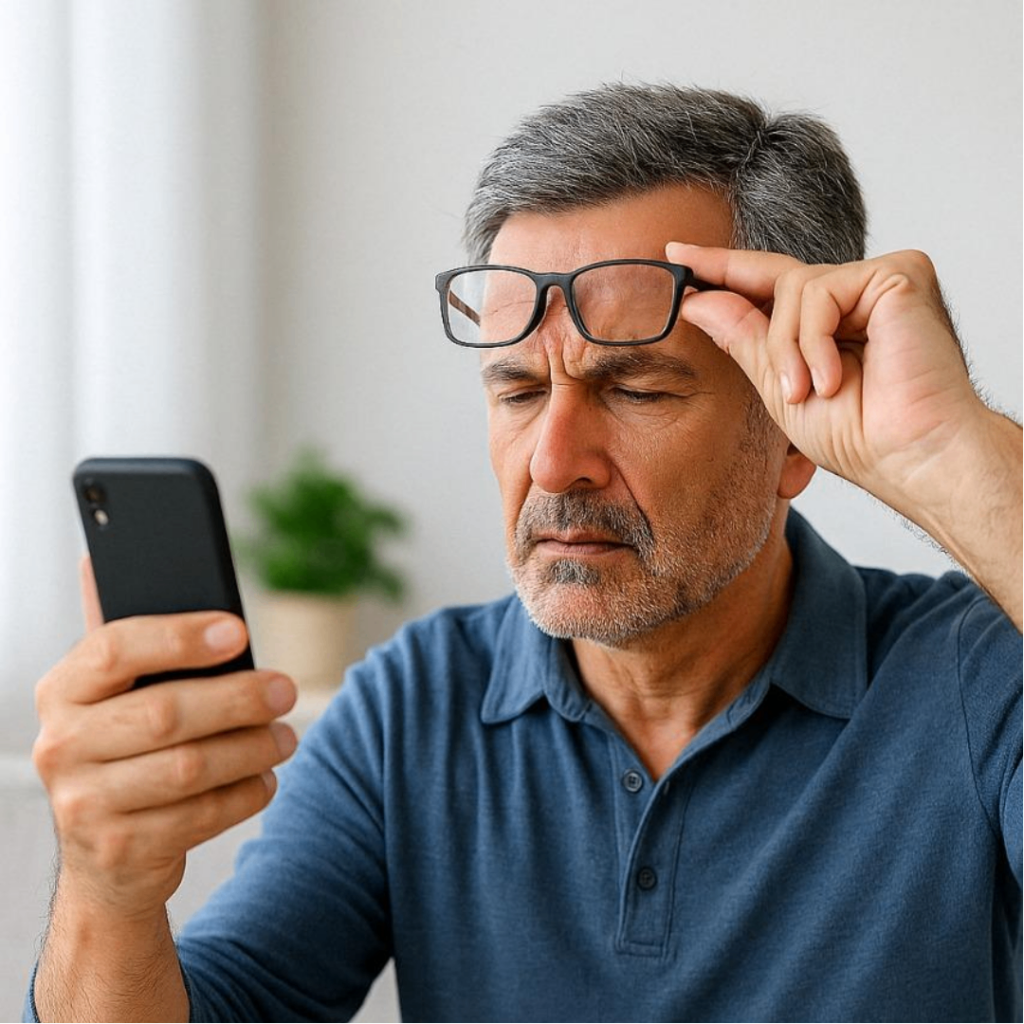Blurry Vision After 40: Is It Just Age or Something More?

It’s a moment many people in their 40s recognize—you pick up your phone or a menu, and the text seems blurrier than it did last year. Maybe you start squinting more often or needing brighter light to read comfortably. While some vision changes are expected with age, blurry vision after 40 isn’t something to ignore. It may be normal—but it also might not be.
At OptiCare Health, we help you figure out what’s behind the blur, and what steps you can take to restore clarity and prevent future problems.
Age-Related Changes: What’s Normal?
The most common cause of blurry near vision after 40 is presbyopia, a natural process where the eye’s lens becomes less flexible. This makes it harder to focus on nearby objects, especially in low light. People with presbyopia often report:
-
Holding books or phones farther from their face
-
Needing brighter lighting to read
-
Trouble switching focus from near to far
This doesn’t mean anything is wrong—it’s just part of how our eyes change with time. But even natural changes deserve proper support. At OptiCare Health, we help patients find comfortable solutions, such as high-quality reading glasses or progressive lenses, customized to your lifestyle.
If you spend hours in front of a computer or work in variable lighting, we’ll recommend lenses that reduce fatigue, block blue light, and support your vision all day long.
But What If It’s Something Else?
Not every case of blurry vision is due to presbyopia. Sometimes, it’s the first sign of a more serious condition that requires attention. Common causes include:
-
Cataracts: Blurred, cloudy, or dim vision caused by lens opacity
-
Glaucoma: Gradual vision loss, starting at the edges of your sight
-
Macular degeneration: Affects central vision, making reading and faces harder to see
-
Diabetic eye disease: Damage to blood vessels in the retina due to high blood sugar
-
Dry eye syndrome: Causes fluctuating vision and discomfort, especially after screen use
Even subtle symptoms—like one eye blurring more than the other—can be important clues. At OptiCare Health, we use advanced diagnostic tools during every comprehensive eye exam to detect these issues early.
What Makes OptiCare Different?
We don’t just update prescriptions—we take your full eye health seriously. Our Brooklyn clinic is equipped with advanced imaging systems, a wide range of lens technologies, and a team that listens. We spend time explaining what’s happening in your eyes and help you make informed decisions.
We also offer our exclusive Vision Simulator, which lets you “see” how conditions like glaucoma, macular degeneration, or cataracts affect sight—so you can truly understand the value of early detection.
We believe education is empowerment, and vision is too important to guess about. If you’re 40 or older, even small vision changes deserve expert attention.
See the Full Picture. Book Your Exam Today.
Don’t let blurry vision become your new normal. Schedule a full eye exam at OptiCare Health and let our team find the cause—and the solution. From early signs of presbyopia to more complex conditions, we’re here to make sure you see clearly, now and for years to come.
